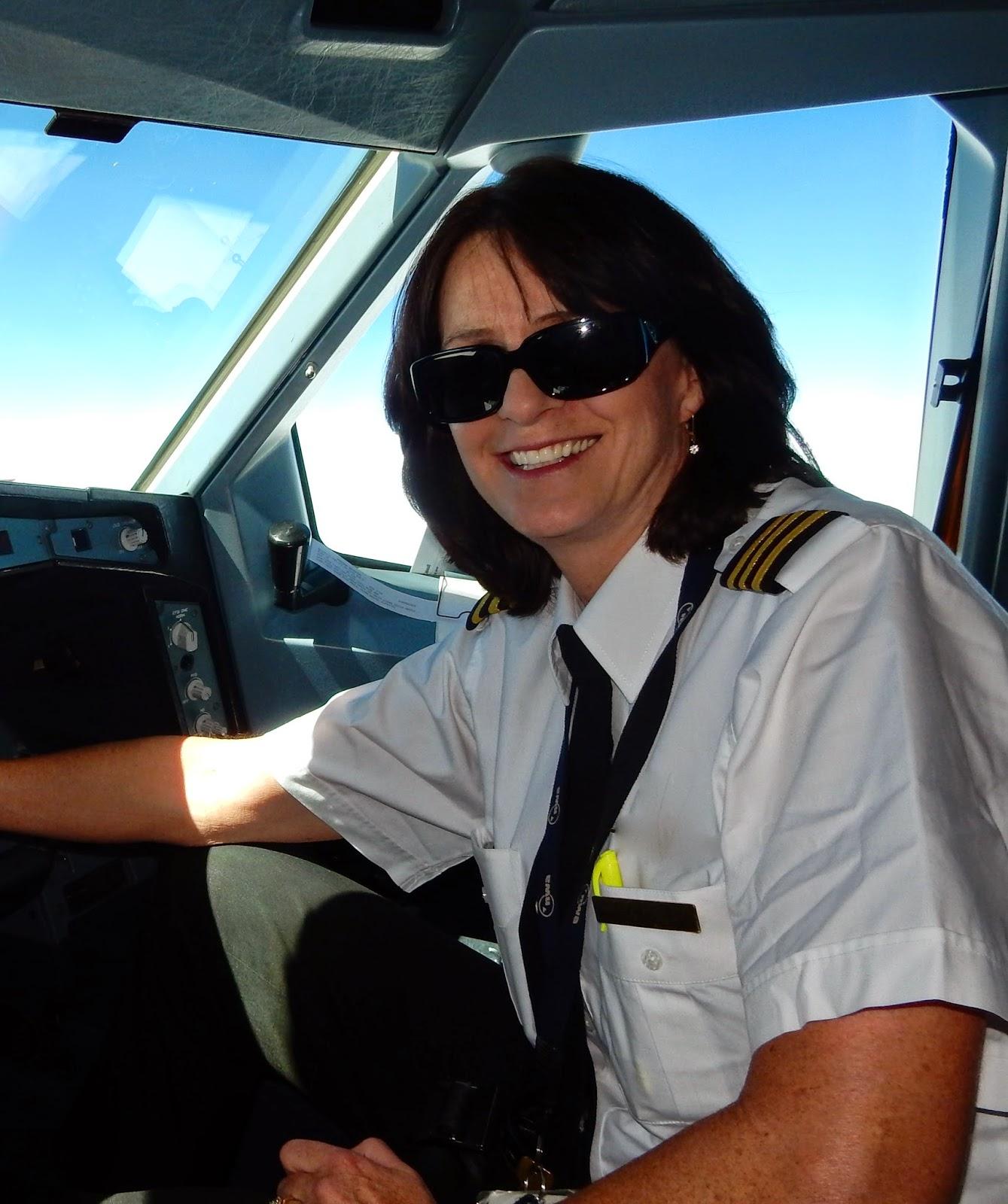
They say Frontiers' policies fail to accommodate breastfeeding pumping at airports or on aircraft.
In a statement, Frontier says, "Our policies and practices comply with all federal and state laws." It went on to say, "While there are many workplaces that might allow for nursing mothers to express breast milk during a break from work activities, the duties of a commercial airline pilot present unique circumstances."
The complaint will go before the Equal Employment Opportunity Commission. For now, we wanted some perspective on what it is to be one of the three to five percent. That is, three to five percent of airline pilots are women.
Karlene Petitt has flown for eight carriers over three decades. She's still in the skies, but didn't want to identify her employer-- as she's not speaking for an airline. She's also a writer who has put together training manuals and company procedures.
"We think we're in the new world, but we're not quite there yet," she said.
She spoke to Ryan Warner. Click the audio link above to hear their conversation and read highlights below.
On the choice female pilots have to make:
"It's challenging to be a mother and a pilot. ... I always knew from 9 years old I was going to be a pilot. And then I thought, 'OK, I'm going to have my kids and I'll start when they're all in school.' ... But you have a choice: Either you wait or you're going to not have children, and give up the chance for a family."
On the challenges all pilots face:
"Part of being a pilot is the ability to separate your tasks. You go to work and you focus on the job. And so the stigma of, 'well, mothers are going to be an airplane thinking about their kids.' That should be no different than men on the airplane thinking about their kids, or their wife, or their finances."
On a possible solution to the pilot shortage:
"Where are we going to get the pilots? We can get them from the female population -- except right now women are thinking they don't have the ability to do this."
On other jobs female pilots could do after childbirth:
"These ladies can be instructors. They can be working in the office. There's numerous jobs behind the scenes at their talents as airline pilots could be utilized as resources. But they're not."
On the persistence of sexism in the industry:
"I had to prove myself when I got on that 747, as a new hire. The pilots, they looked back and they said, 'Why did you get here? Why are you here? Is it because you are a woman?" That's always been the stigma. So when I was able to say, 'I did this, and this, and this, and this,' all of a sudden, they realized I had more experience than they did. And I'm accepted. So it still is a challenge as you are working up. ... It is better, but we're not there yet."









